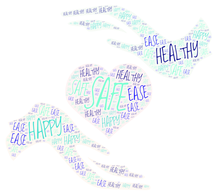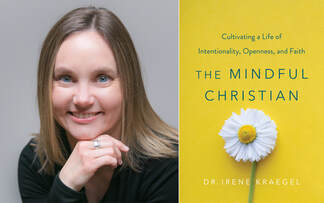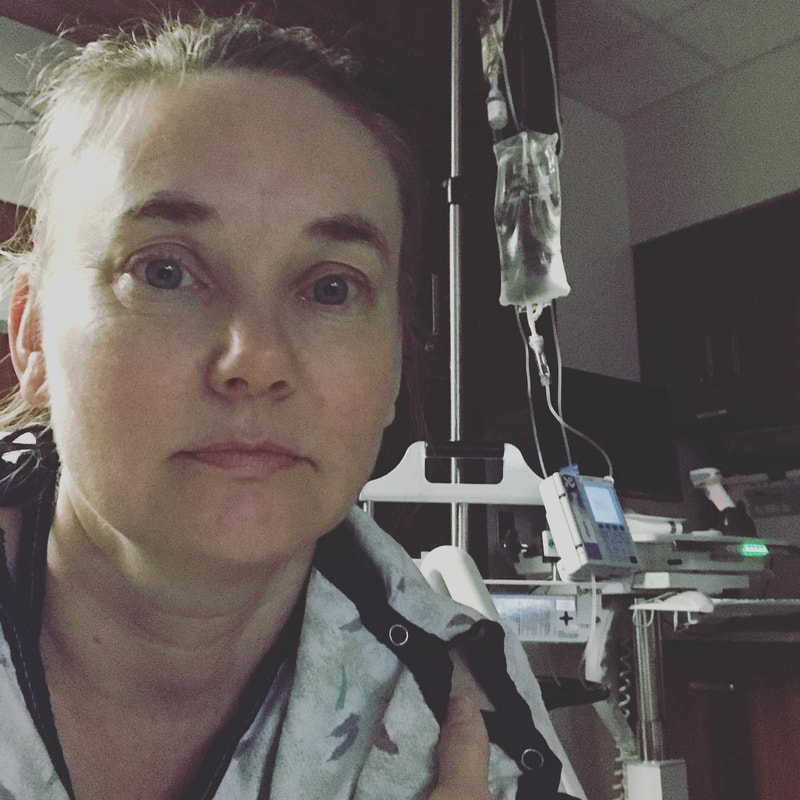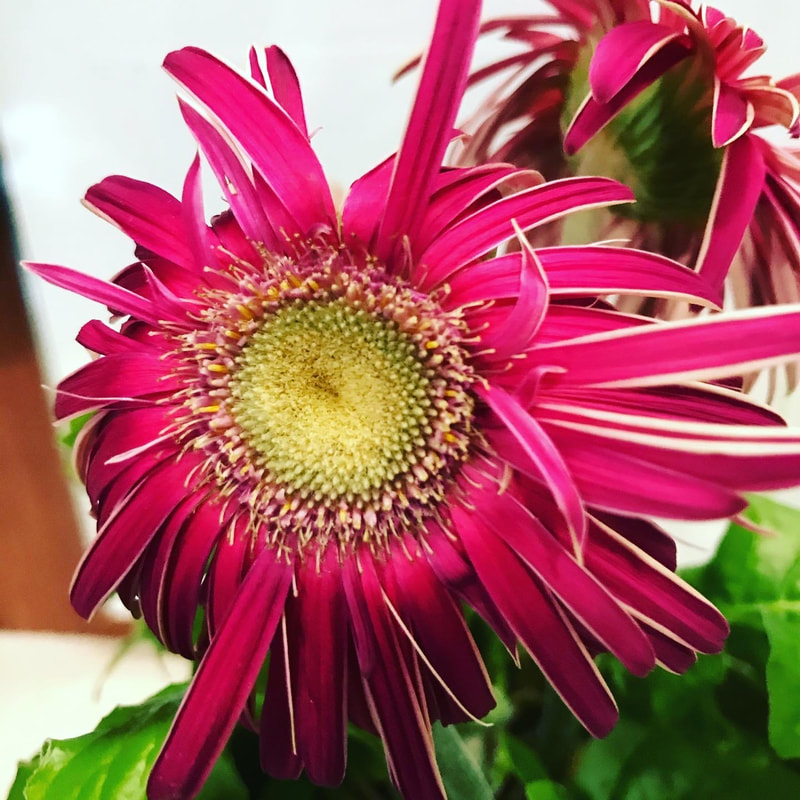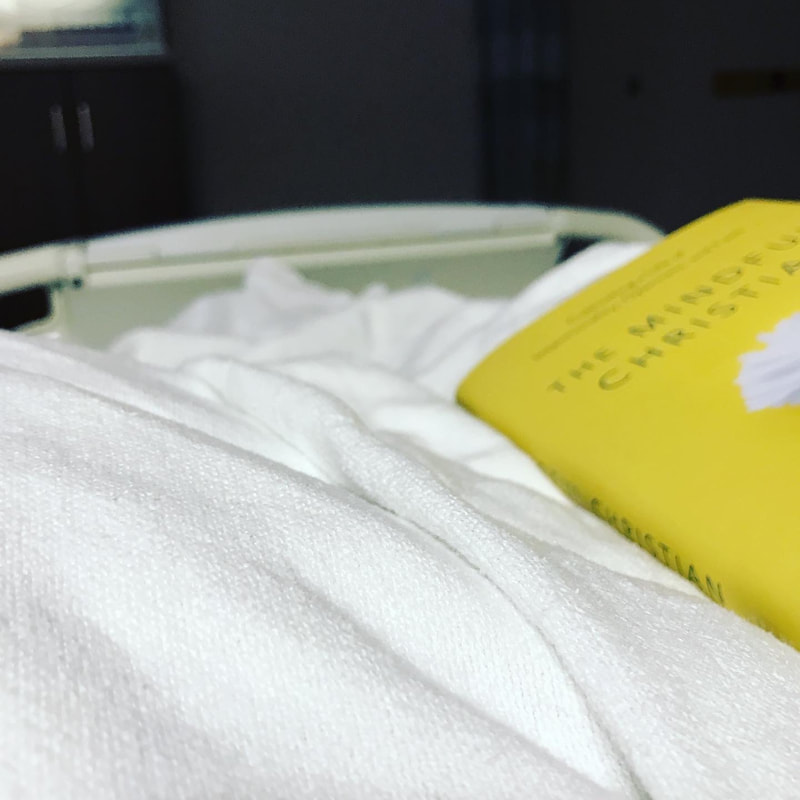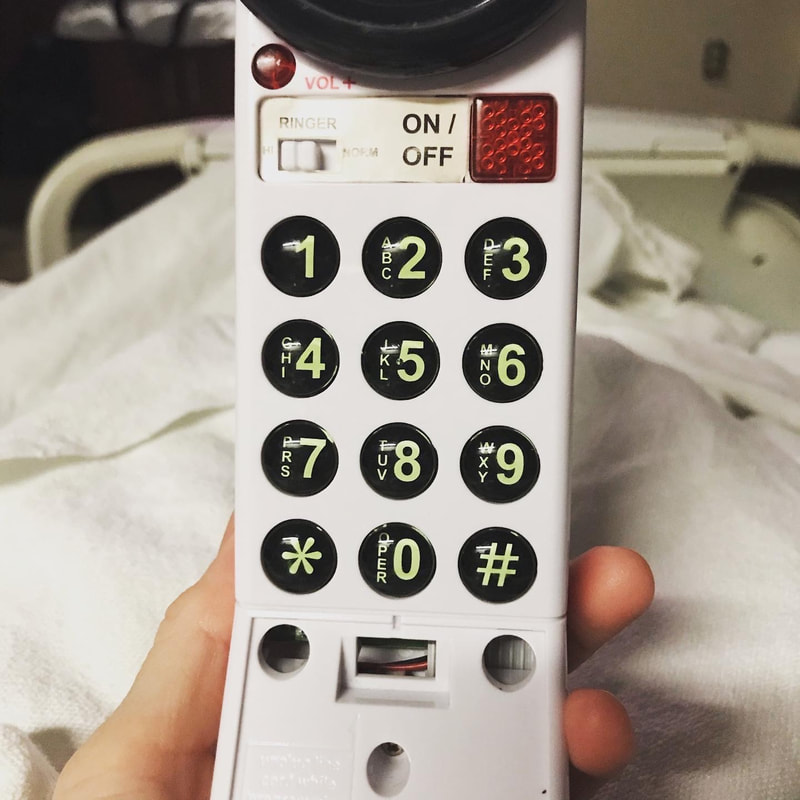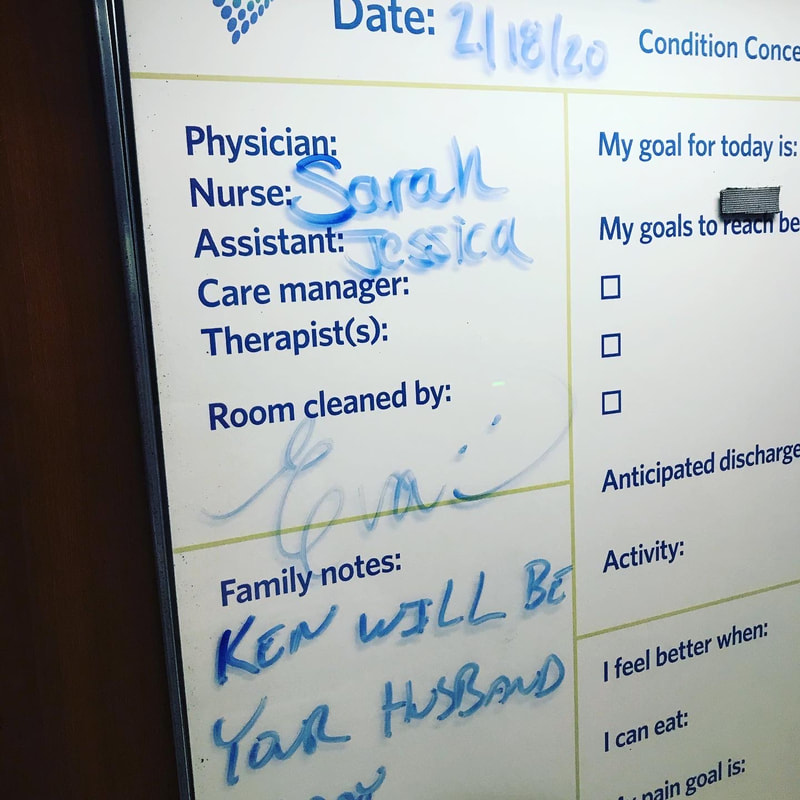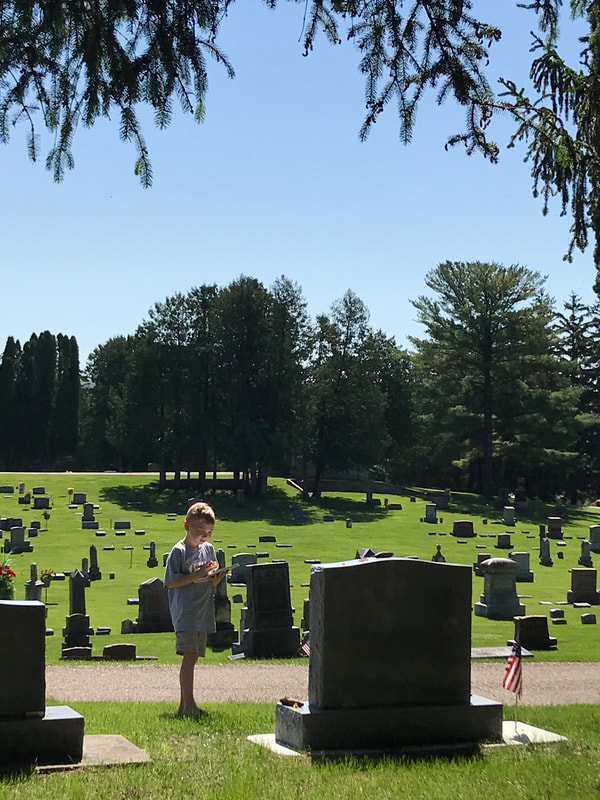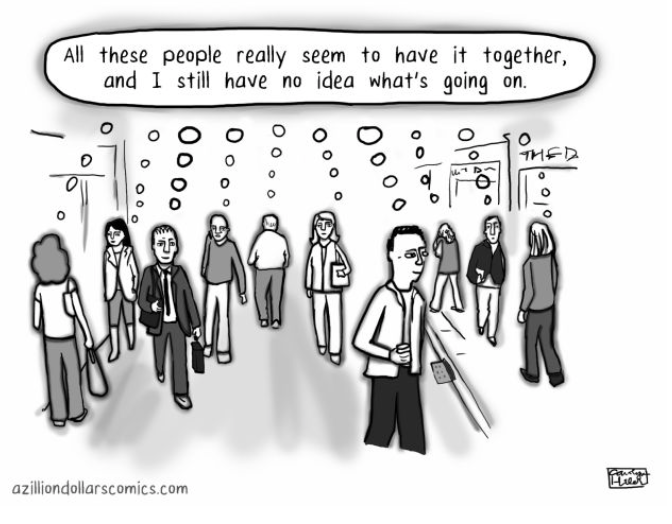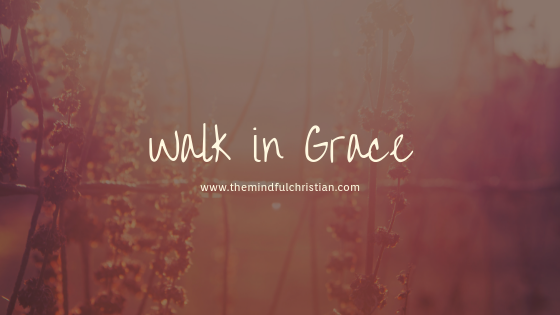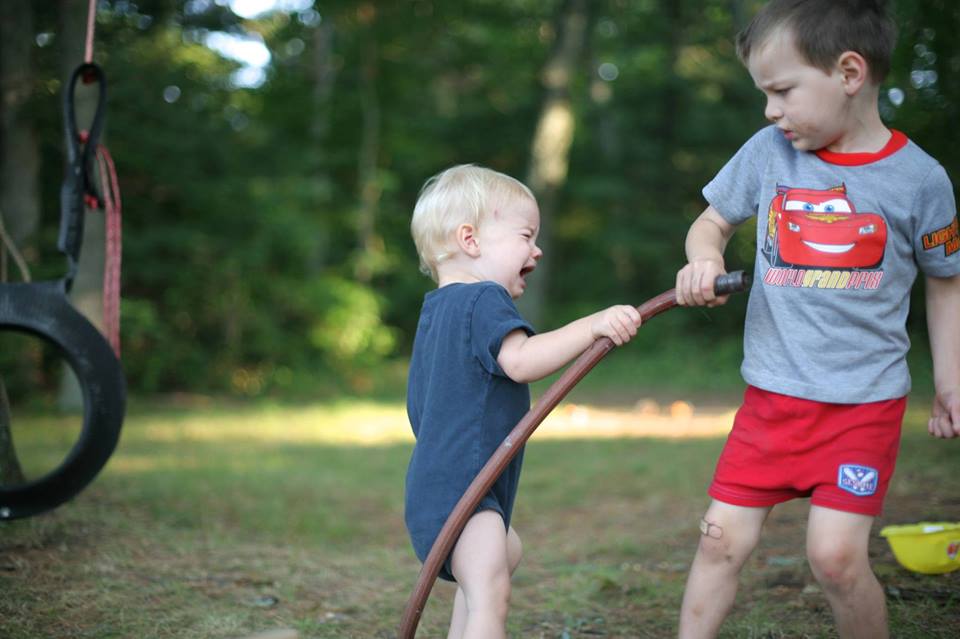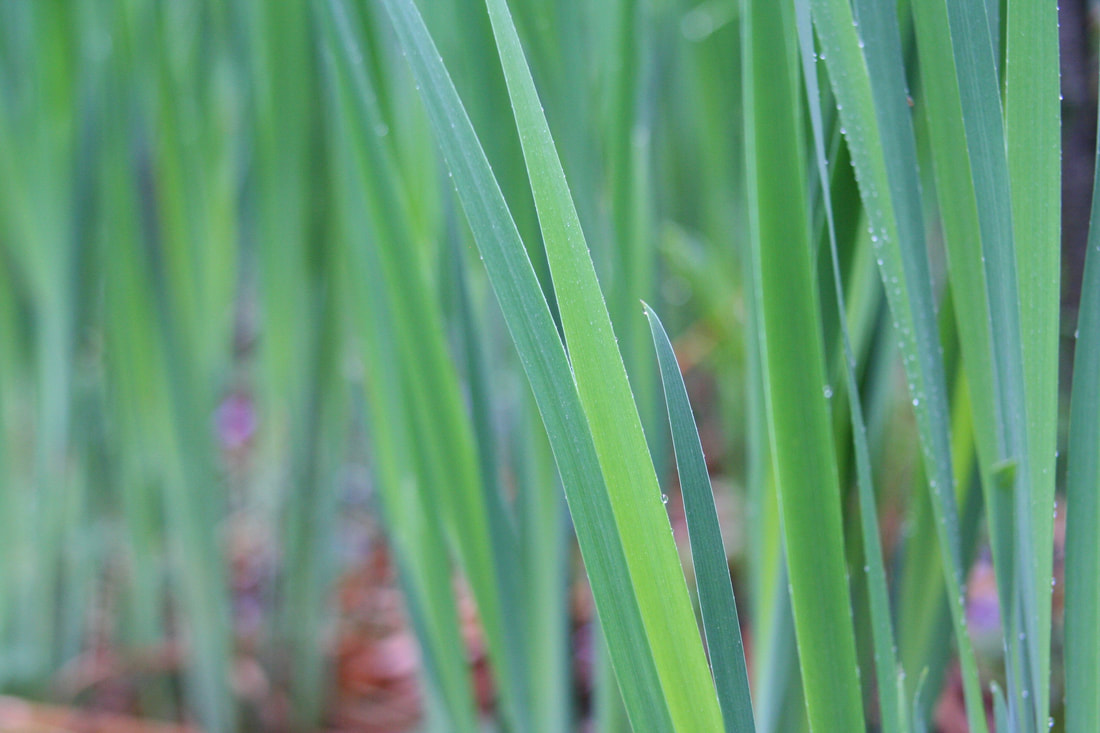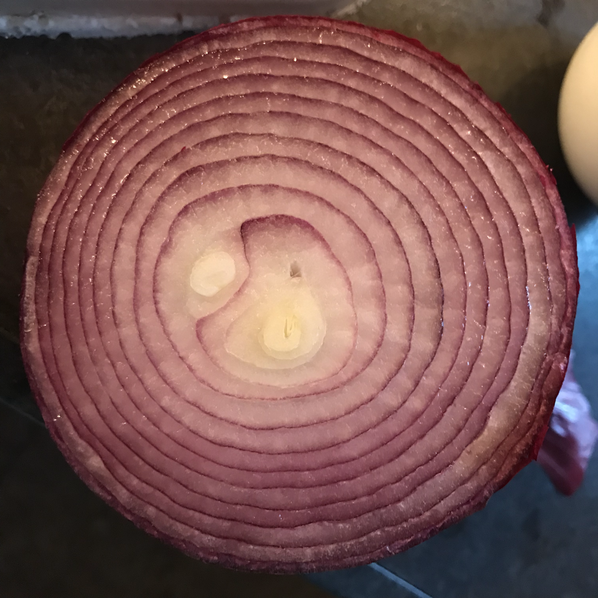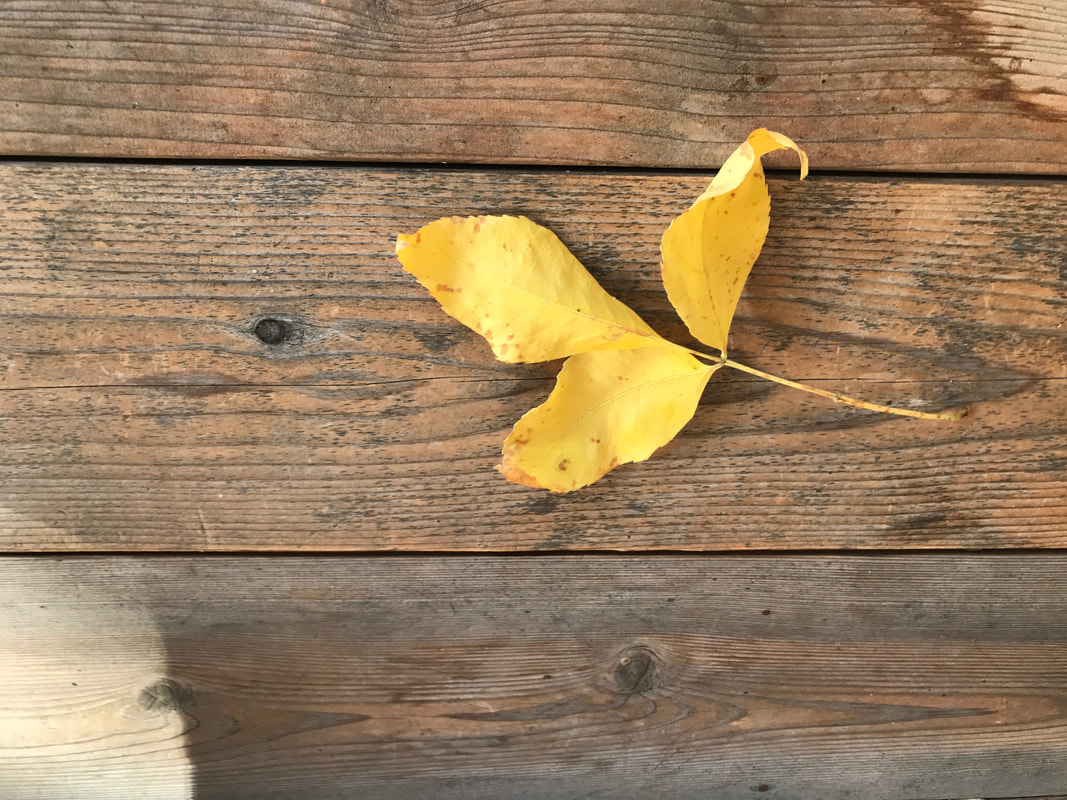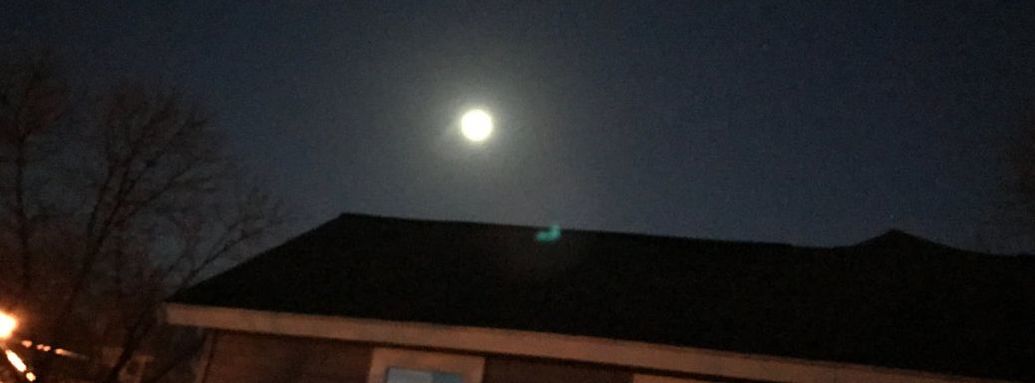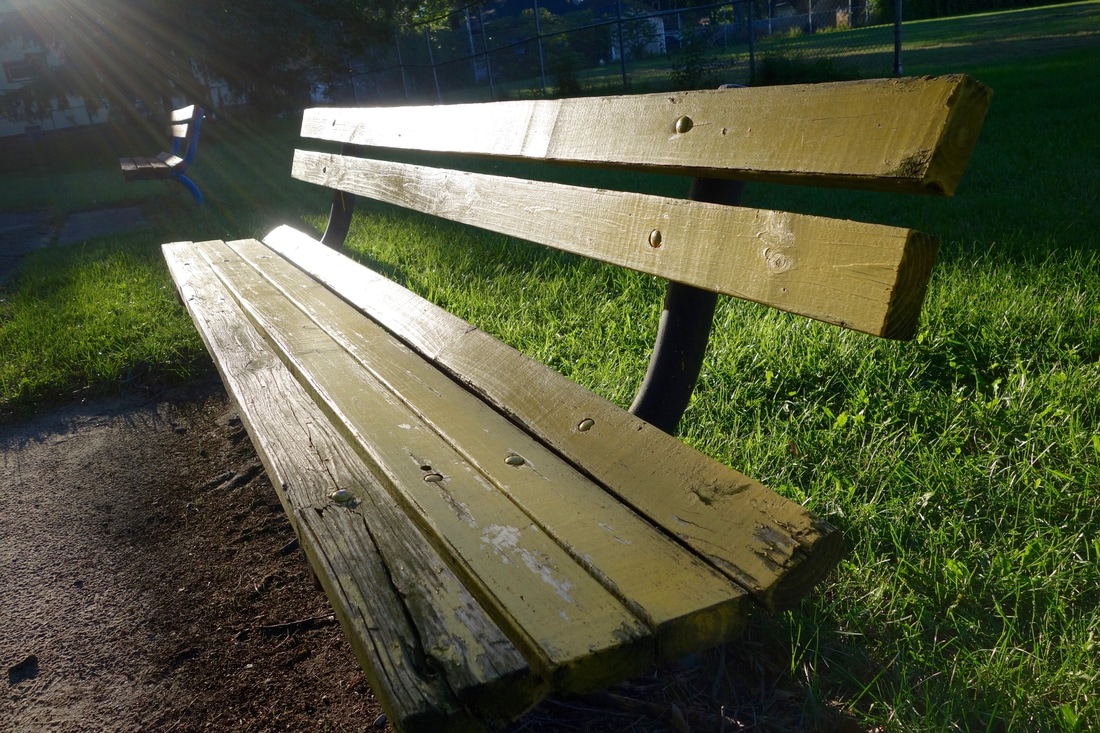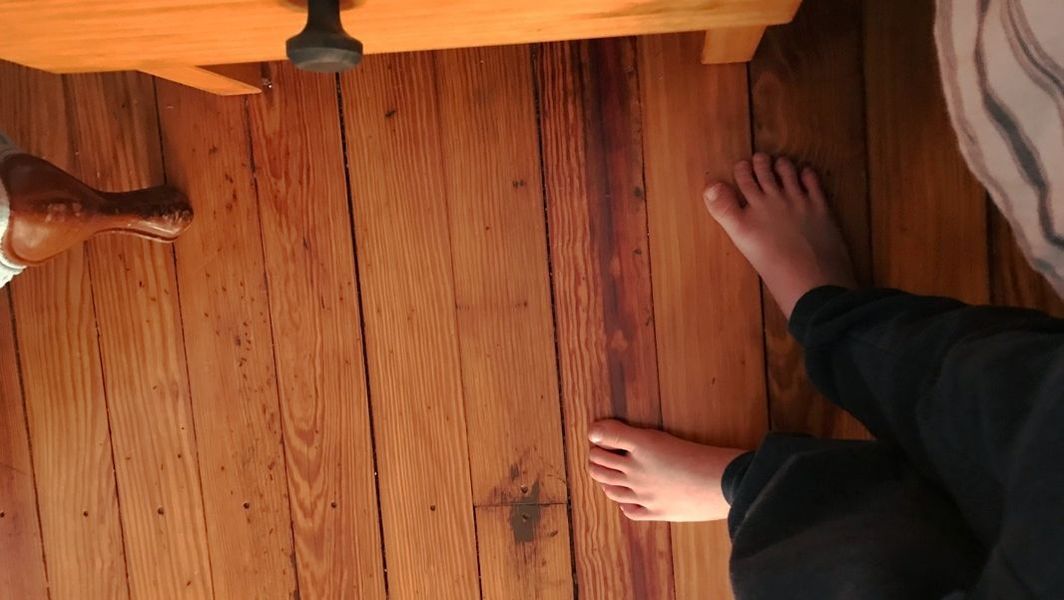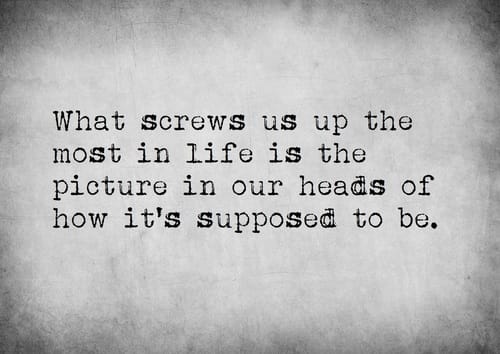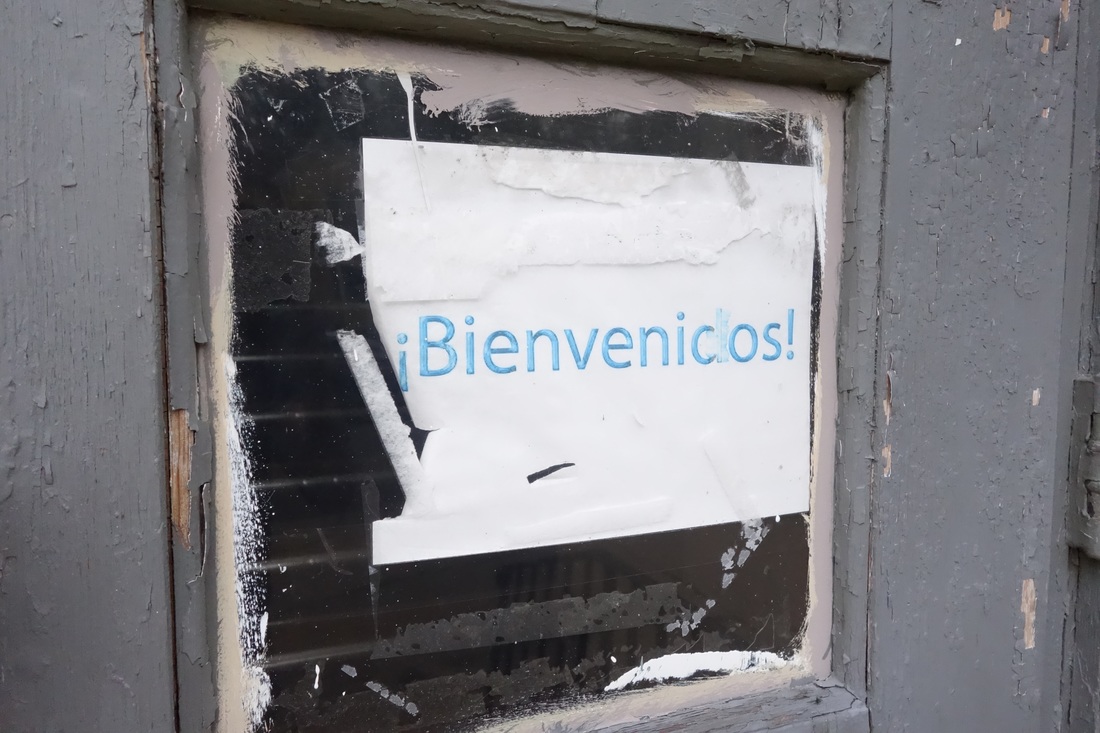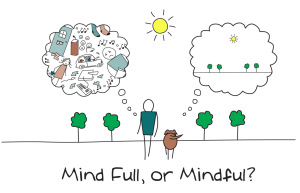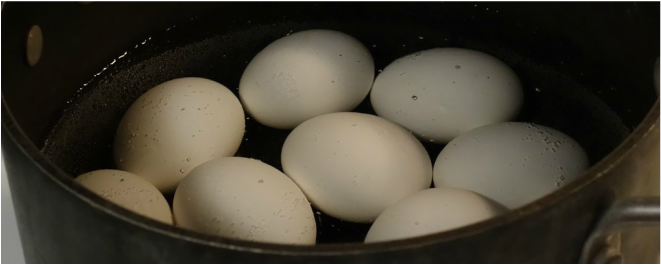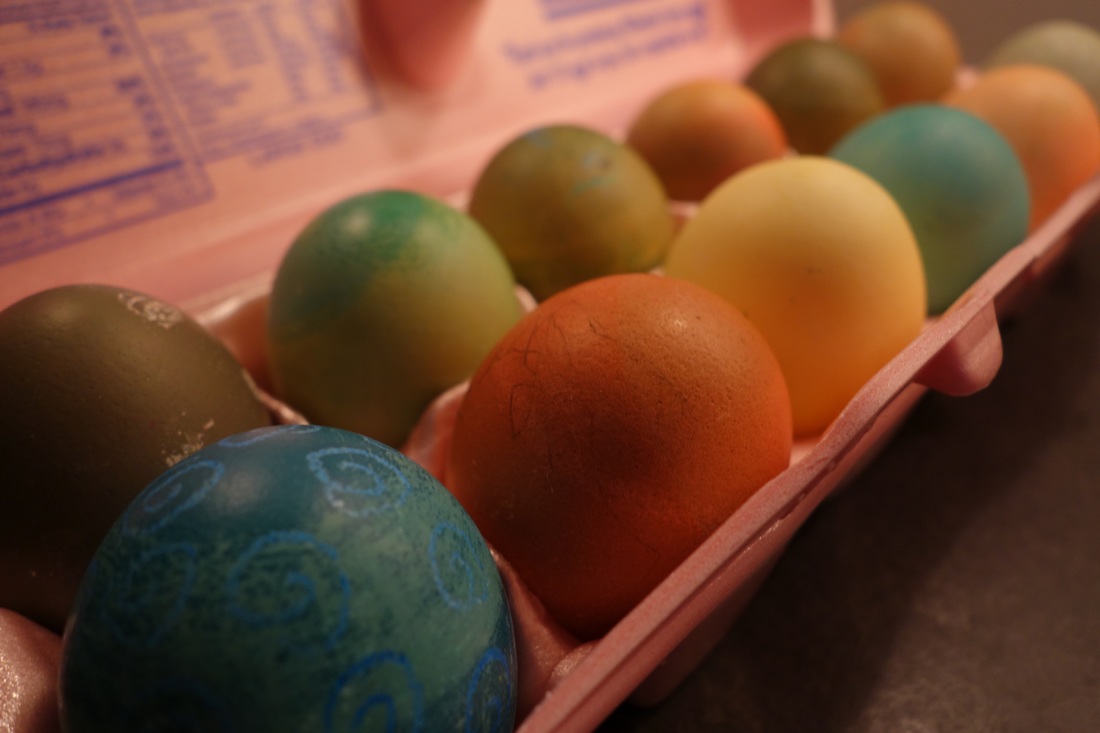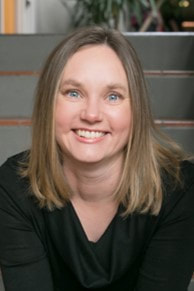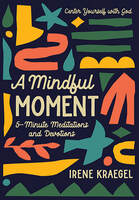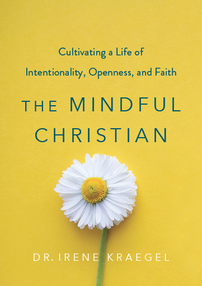 Mindfulness practice draws our mind back from anxious wandering to notice what is real in the moment, in the now. One of the things we might notice in the moment is anxiety about the future, and you might be wondering what to do with those anxious thoughts and feelings, particularly during this season of fear about COVID-19 around the globe. Anxiety feeds off vagueness. Our auto-pilot mode of thinking can push us through thinking loops that never quite land anywhere, stirring up emotional suffering without giving us an opportunity to notice what is true or to answer our own questions. So if you’re feeling anxious during this coronavirus pandemic, you might begin by sitting down with a pen and paper and answering this question: What are you afraid of? Name it Start by creating a written list of your fears. Take them to their natural conclusion, even if that raises anxiety in the moment. Chances are, the natural conclusion of most coronavirus fears will end with “I’ll die.” (Ex. “While I’m shopping at the grocery store, someone will pass the coronavirus to me and I’ll die.” or “Those people congregating at the park will pass around the coronavirus. It will travel to me when I talk with one of them and I’ll die.”). Or maybe there’s even a fear beyond death (ex. “I’ll die and no one will remember me, meaning I will have wasted my life.”). You may find other fears as well (ex. “I’ll lose my job and run out of money for food and feel hungry and sad.” or “I’ll have to stay inside by myself for a year until a vaccine is found by scientists and I’ll feel very lonely and depressed.”). Make sure you’ve taken the answers all the way to their end by asking yourself “so then what?” For example, if your answer is “I’m afraid of using the washing machine in the basement of my apartment building,” there’s a little more digging to do there before you get to the ultimate fear. Honor your survival instinct Remember to breathe as you’re answering this question about your specific fears. It’s okay to experience anxious feelings in this process – that’s the body’s survival mechanism kicking in, the fight-or-flight mechanism. God created this mechanism in the brain, and we can honor the emotions and physical reactions that help keep us safe. Humans can do lots of wonderful things, even while we’re feeling anxious, so we don’t need to judge our anxious feelings. It’s okay to have those feelings, no matter how strong they are. One of my favorite therapeutic expressions is learning to “pull up a chair for your anxiety.” As you do this exercise of identifying fears, pull up a chair for your feelings and continue making your list. Anxious feelings may stay for awhile and then wander off and then come back again, kind of like a pet or a small child. But whether or not there is anxiety, you can continue identifying your specific fears, which are simply thoughts and feelings passing through the mind. Engage in problem-solving Once you’ve written down a thorough list of your specific, fearful thoughts, take some time to problem-solve. Examples related to the coronavirus pandemic might include…
A slightly humorous example of this might be the toilet paper crisis of the last month. I noticed myself feeling anxious about this a couple weeks ago – what if we run out of toilet paper because there’s no more available at the stores? I got a little more specific about my fear, which came down to smelling bad and feeling physically uncomfortable. So I did some problem-solving. I researched alternatives to toilet paper, of which there are many. I remembered how toilet paper has not even existed for most of human history. I also reduced the amount of toilet paper I was using in order to conserve my supply, realizing I have been using way more than needed! All of this led me to let go of that particular anxiety. Turns out toilet paper is completely optional for us to lead meaningful lives. I can find ways to exist quite happily without it, if needed. A heavier example might be death. There have been times recently that I’ve noticed my chest tightening and my breath shortening when I think of the coronavirus – that fight-or-flight instinct kicking in. When I get specific about my fear, I realize it’s a fear of dying. So I notice that and smile at the fear, knowing it’s quite normal to fear death. Then I come back to a few helpful truths – truths I have drawn on since I first experienced an acute fear of dying during the month after 9/11, truths that have provided comfort and seen me through the loss of many people I’ve loved over the years. I identify my specific beliefs about death, heaven, and God’s provision. I recognize that my mortality is part of what unites me with every human in the history of the world. I also return to songs that ground me in eternal truths stretching far beyond this human existence, sometimes even sitting down at the piano to sing them through myself. Here are a few of my favorites:
Firm it up You’ve done some problem-solving, now be specific with yourself about how you will implement your plans. Identify your strategies for managing any actual dangers or threats, and take steps to minimize or reduce those threats. Identify thoughts, prayers, and songs that are helpful in connecting you with God’s comforting presence. Be intentional about next steps so you can rest in God’s provision. As you engage in this specific planning, notice where you are making useful plans for the future vs. where your mind spins into less useful ruminating. Also, pay light attention to what is happening with you in the moment - what is happening right now? Is there any provision, any comfort, any goodness? Don't miss out on what God is providing in the moment. It is your reminder that he will keep providing for you in all of your moments. God is bigger The reality is that God is bigger than the coronavirus. Humankind has been through numerous pandemics of this nature, along with wars, natural disasters, and other devastations. This is not the first time, and it will not be the last. But our God is stronger, and his plan is bigger. We see the short game (this lifetime), but he sees the long game (eternity). We know only our own strength (as individuals and communities), but he holds the power of the universe. We can trust in him, even when we feel afraid. Someday it will all be more clear. For now, we have what we need, one moment at a time. “For now we see in a mirror, dimly, but then we will see face to face.” 1 Cor. 13:12
0 Comments
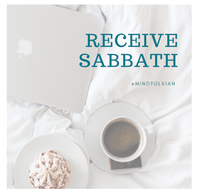 A global pandemic is scary and dangerous, and it's also good for a few things. It reminds us we are not invincible. The coronavirus reached my part of the world just after our celebration of Lent, when we heard the words "from dust you came, and to dust you shall return." These words are powerful because they let us off the hook of trying to be God. We are small and we are temporary. We can enjoy all we have as a gift, knowing that this earthly existence is only one piece of our eternal reality. It's okay to be mortal. It slows us down. Although coronavirus has kicked my job into high gear (SO much work to do!), it has also cleared my personal calendar of all social gatherings, corporate events, and worship services. For others, it has led to even more disruption, such as job lay-offs or physical quarantine. Having an altered schedule (even in the midst of very real stress) can give us a chance to learn a less harried pace, to practice Sabbath, and to enter new rhythms of rest. It provides solitude. However you feel about people in general, it is true that we need one another. It is also true that we need silence and solitude. The preventative practice of social distancing due to coronavirus forces us to confront our discomfort with solitude, our anxiety about silence. It teaches us about how much we care about each other, how important connection is to us - and it also provides us an opportunity to learn from silence. It sheds light on our auto-pilot responses to stress. Whatever you are doing to respond to the virus provides a lot of information for you about your typical responses to anxiety. Are you sticking your head in the sand, obsessively watching news, lashing out at those who think differently from you? Or maybe you're focusing attention on what you can control, reaching out with kindness to those in your circle, or using humor to get through? Notice your go-to responses in this situation, and notice how effective these are in supporting positive coping and divine trust. This is helpful information for other stress-inducing situations throughout your life. It forces us to release our grip on perfection. There are so many ways we push and pull and jerk on life most days, thinking that if we just did more of the things and followed more of the tips then we could get it all right. Coronavirus has reminded us that we cannot make the world perfect. There are forces outside of our control, and times where we cannot keep everything running just right. It's okay to be imperfect. However you're experiencing this global pandemic right now, I send you some lovingkindness as we walk the journey together:
God has our good at heart, and he is seeing us through. I'm reminded often these days that we are living a story, and what an exciting story it is! Full of plot twists, surprises, and sheer terror at times - but God is the author of our story, and we know that the end is good. We never know what a week will bring! My new book launched yesterday, and I crossed the midnight threshold of the day in an ER, before being transferred to another ER, before being hospitalized for a rare infection that now requires a 48-hour IV antibiotic treatment. This definitely was not the plan for launch week!
I love mindfulness for times like these. It helps me roll with it. It reminds me that change is the norm - that I'm not okay because I'm in control, but I'm okay because I'm in God's hands. It keeps me slightly amused by the every-shifting landscape of day-to-day life, moment-to-moment, with all of its challenges. And it definitely helps me receive the joy in the midst of the challenge. But what I planned to write you about yesterday (and now today) is that The Mindful Christian book is out! If you're in the Grand Rapids, MI, area, please join us for a 7pm book launch celebration tomorrow (Thursday, February 20) at Baker Book House - you can reserve your free ticket here. And if you're not in the area or have other plans, I hope you'll find a copy of the book elsewhere and then have your own personal celebration! Better yet, share it with your friends at church, Bible study, book group, or work, and practice mindfulness together :). It's available online and in bookstores. Building on the work of this website & blog over the past several years, The Mindful Christian book will provide you with an overview of mindfulness principles, devotional-style exploration of mindful Christian faith, and many practical exercises to try out on your own. It's meant to be a tool for you on your spiritual journey, helping you to clear the path to God's presence on your walk of Christian discipleship. I hope you will find the book to be an inspirational and helpful tool! Back to my health... looks like I'm going to be okay, and a mindful lens has allowed me to enjoy these hospital pleasures over the past couple days:
These are the kinds of little pleasures that make up happiness - I don't want to miss them, whether the week is ordinary like last week or drama-filled like this week. I want to be paying attention so I can receive all the good stuff God has for me, moment to moment. From my unexpected hospital bed, happy launch week!! 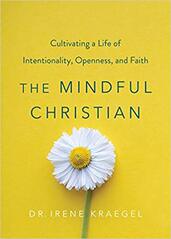 I have a book coming out in two weeks! It's called The Mindful Christian: Cultivating a Life of Intentionality, Openness, and Faith. I worked really hard on it, and I'm excited to share it with the world. The book is meant to inspire, teach, and encourage, and it also has a bunch of my life story in it. You'll find options for mindfulness practice throughout, in case you're up for some practical application, and your heart will be invited to rest, heal, and grow. If you pre-ordered, you may have received your copy already, otherwise it hits stores on February 18th. I thought I would share an excerpt of the book with you on my blog today as a teaser. I hope it refreshes your soul. _________ Excerpt from The Mindful Christian: Cultivating a Life of Intentionality, Openness, and Faith by Irene Kraegel, pp 7-8 (Fortress Press, 2020) Mindfulness is called a “practice” for a reason, as it is more of a recurring exercise than a permanent state of mind. Even the most seasoned meditators find their minds frequently wandering, so instead of expecting to “arrive” at a mindful state, we practice “returning”—coming back, over and over, to this place and to this moment. We give up expectations of any particular result, and we give up fruitless striving, trusting that God will do God’s good work. Rather than trying to create a state of relaxation or calm through mindfulness practice, we practice being awake to whatever is in the moment. Whenever we notice that the mind has wandered off, we return to the present with gentleness and curiosity. We come back to the place where God is working in us—right here and right now—as we reconnect with our calm center. If you would like, you can try this in the form of a micropractice by pausing and noticing where your mind is right now. Notice any expectant thoughts for this small practice, and simply become aware of what you think “should” happen as you try this out. If possible, observe your thoughts with light, curious, gentle attention, no matter what you are feeling, and notice that you are sitting in God’s presence as you do this. This is Christian mindfulness—creating just enough observational distance to become aware of your experience in the present moment with kind awareness, recognizing that God is with you in that moment as part of your present-moment experience. Now, as you reflect on the micro-practice, what did you observe? Was there any way in which that light, curious attention changed your perception of passing thoughts? There is no right or wrong answer here, it is simply a moment to notice. As we progress through these pages, you will have additional opportunities to dive into mindfulness practice at various levels if you so choose. For Christian disciples, each micro-moment is where we are learning and practicing the rhythms of grace; this is where we have access to God’s transforming presence. Whether we are enjoying the present moment or wishing it were different is irrelevant to its usefulness as a place of divine instruction. In the present moment, in the here and now, in the place where we are—this is where we are alive. And here is where we have the repeated opportunity to learn from our creator teacher. But such learning requires first that we show up, that we be present. This is the practice of mindfulness.  Grief has been on my mind lately. I lost a daughter to stillbirth at 37 weeks. Since that horrible August day in 2008 when Elsa’s heart stopped, so many layers have been added to my life story and I don’t think about her every day anymore. But when I visited a new gyn a couple weeks ago, I was unprepared for the exposure to dozens of pregnant women moving through the waiting room – some alone, some with significant others, some getting ultrasounds to find out the gender of their new little one, some getting unexpected procedures that delayed the start of my own appointment. The grief snuck up from behind and caught me off guard, welling up in my throat and leaking out of my eyes. Suddenly it was hard to breath, hard to see, hard to hope. I didn’t see it coming. My heart hurt, and it hurt for a long time after that. I’ve been missing Elsa. In my church, we’ve grieved many deep losses over the past year, including the death of Luther Ward who served as a founding member of our congregation in 1962 and was still cheerfully telling jokes to anyone who would listen at the back of the sanctuary a few short months ago. At my work, I’ve been guiding a group of students in a therapy group related to the loss of parents and grandparents over the past year – losses that make it so difficult to stay present to their work as students heading into finals week – and the grief in the room is thick and heart-wrenching. And then this weekend, I read Bridge to Terabithia, joining my tears with the millions of readers over time who have been swept up in the loss and pain of the book’s ending (based on a real-life experience of the author’s family). When my grandparents died two years ago, I started a blog post about grief and mindfulness that I never finished. Now that grief is showing up regularly again, I think it’s time. My grandparents both died in 2017. We had always lived far apart from one another. Over my many years of restless moving, they were settled in a quaint little Iowa town that pulled our family back every two years at Christmastime. Those holiday gatherings were nonnegotiable for my grandparents – my grandfather especially – and we found a way to make them work, even near the end when their health was failing. As my grandparents aged, it took me by surprise to recognize the depth of my emotional bond with them. They were often reserved, quiet, stubborn, and fiercely independent. And yet it became clear over time that they had created roots that were also my roots – their abiding faith, their unwavering love for me, and their insistence on consistent family gathering created a foundation for my identity as a loved child of God. A better writer than I could put the power of these roots into words. Suffice it to say that their quiet and deep impact on my life cannot be overestimated. I owe so much of who I am to who they were.  When my grandfather was dying, my husband, young son, and I dropped all of our responsibilities and drove the 8 hours to Iowa to be by his side. I had never watched anyone die before. It was agonizing. He was thirsty, he was uncomfortable, and it was sometimes hard to tell when he was conscious. But in true Granddad style, he was mostly lucid and sweet and funny. The night before he died, he requested steak and strawberry ice cream – not that he was able to eat anything more than ice chips – and by golly, I bought him the most expensive steak in the store, and we grilled it up on the neighbor’s grill, and my husband fed it to him in tiny chunks. That man loved steak and ice cream, right up to the very end. Perhaps my sweetest memory from that time was peeking into my grandfather’s room and catching my six-year-old son sitting at his bedside. With his newly acquired New International Readers Version, and his newly acquired kindergarten-level reading skills, my son was reading Bible verses to encourage Granddad’s spirit – reading in his adorable little-boy voice to my 98-year-old grandfather, a retired pastor, on his death bed. “We will be with him forever,” he read, "so encourage each other with these words of comfort." Later, he learned how to say “First Thessalonians” so he could repeat the reading of this verse at Granddad’s funeral. This experience taught me the power of showing up. I’m not always great at showing up for the difficult, painful, emotionally vulnerable moments of life. Sometimes there’s nothing to say, and sometimes it’s just awkward. Being guarded and absent can feel pretty nice sometimes, or at least pretty numb – oftentimes, I don’t even notice that I haven’t shown up. But going through the dying process with Granddad was a profoundly beautiful experience, both individually and communally. I was so glad I was there. 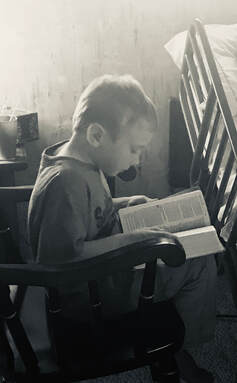 It struck me as we drove home from my grandfather’s funeral service that saying goodbye is best done when we are willing to genuinely say hello to whatever is happening – when we have shown up. I thought of the people who flew across the country on short notice to show up for Elsa’s memorial service after her stillbirth, and how much that meant to me. I thought of our dear friend Bob who openly grieved that loss with us, crying for our daughter and his elderly wife who had died months before as we hugged each other in the farmyard. I thought of the clients I have worked with over the years who have courageously shown up for their own pain and grief, walking through the valley of the shadow of death (Psalm 23) in order to find God with them, in order to find healing. All of this showing up has meant so much to me, has been so enriching, has made life so much better. All this showing up has made the goodbyes (miraculously) beautiful. So here’s where mindfulness comes in. To grieve well, show up. Wherever you are in the process – maybe there’s a loss coming soon, maybe you’re right in the middle of a loss, maybe the loss has already happened (yesterday or sixty years ago). Maybe it’s a death you’re grieving, or an ended marriage, or a devastating diagnosis. But whatever the loss, and wherever you are now, show up to your feelings, to your community, and to the work involved in the loss. Be present. Don’t numb it all out, don’t run away, don’t miss it. As much as you are able, stay present to the loss in all of its pain, receiving God’s kindness and care toward you along the way, and you will find all that you need. As I write this, we are entering the Christmas season. Christmas is filled with memories of my lost daughter, and the six children before her lost to miscarriage. “Bless all the dear children in thy tender care” is not just a children’s carol for me, it’s a prayer that speaks my longing for my kids. And the piles of family photos that come through our mail box pull up old feelings of jealousy and bitterness about the families other people got – feelings that are ugly and painful, not to mention largely irrational. So I practice mindfulness this Christmas season. I will have moments of joy and of sadness, moments of gratitude and of anger, moments of connection and of loneliness. There will likely be times of deep connection with Emmanuel, God with us. (By the way, that’s what we named our first miscarried son - Emmanuel.) And then there will likely be times of spiritual ennui and disillusionment. None of this need be threatening. In the presence of a God who loves us, all feelings are acceptable. All feelings are safe. I choose full presence to my feelings of grief and everything else, knowing that God is also fully present there. Is grief on your mind too? It’s okay – lean in, open up, feel what you feel, as much as you're ready. Showing up goes a long way. In the children’s worship class at my church, there is a tug-of-war of sorts over the music. For a long time, the standard request every Sunday morning was Joshua Fought the Battle of Jericho. Kids lined up along the wall and sang the song, and then fell down at “the wall came tumbling down” – except that several children found it hilarious every week to remain standing, and then we would sing it again to see if we could get the whole wall down.
After several years of this routine, a number of us teachers felt that we could no longer take it. The song was loud and chaotic, and there was no evident spiritual benefit. Some of the kids really disliked it. So we wielded our adult power and stopped taking that request in favor of songs like This Little Light of Mine and Jesus Loves Me. Before long, a formal petition was registered by one child participant in the form of a letter taped to the children’s worship wall: “Don’t band Joshwa foght the Batle of Jaraco from this cherch.” Our worship director’s comment? “Song preference troubles start young.” Indeed, we all seem to have strong opinions about church music. Song preferences run deep in the river of culture, generational experience, and personal life history. I have struggled through many a church worship service in my life fuming about the music. This, I could point out, is not the most Christian attitude toward worship. Mindfulness has something to offer here. The things that get me fuming about song choice are thoughts. Not facts, but judgments – my interpretations and cognitive reactions to the songs. Recently, I have started practicing mindful awareness during worship services.
Mindfulness helps me worship. Imposter Syndrome is the belief that you are not qualified for your work, even when other people think you are - the belief that if others discover that you don't have what it takes to meet expectations competently, they will be disappointed and you will be shamed. Some groups at particular risk of Imposter Syndrome include first-generation college students, graduate students, minority group members, high achievers, and young women in the workforce. But any of us can fall prey to this anxious condition, and Christian mindfulness can offer relief. Here are some steps to follow:
Collect feedback and facts Opening ourselves up to the truth can be the hardest thing to do, both when it comes to our strengths and our weaknesses - it feels vulnerable. But this is just what you'll need to do to build a rational framework for addressing Imposter Syndrome anxiety. Start by asking yourself (and/or others) these questions:
Write down the specific answers to these questions. Consider including feedback from others who know your work well - your boss, your professor, a coworker, or a customer. No interpretation, arguing, or minimizing here - keep your observations as factual as possible. Now it's time to create some observational distance. Notice thoughts Here is where mindfulness kicks in. Read over the feedback and facts you wrote down and start to pay attention to the thoughts that arise in your mind while you read. With an objective and curious awareness, begin a list of these thoughts. Examples might include thoughts like “I have no idea what I’m doing," “they don’t know the whole story,” or “that was so dumb of me.” You might notice pleasant thoughts here too, such as "that was really nice of my boss to say” or “maybe they liked what I did.” Whatever the thoughts are, without judgment, write them down and cultivate an attitude of light-hearted (even amused) attentiveness as you read them over. To cultivate observational distance, it might help to imagine that someone else wrote this thought list and you are simply reading it over with curiosity. In this step, you are becoming more aware of your thought cycles, the mental architecture that is driving your emotions and perceptions of your competence. Notice feelings Now, it’s time to recognize some feelings. Put your writing aside and take a moment to close your eyes, sit in silence, and feel the emotional reaction to what you have written down.
So now you have three lists:
Set these lists before God with curiosity and openness to what He might do with them. Then give yourself time - lots of time - to observe these three areas day-in and day-out. Keep writing down your observations in each of these areas, and keep setting these before God to see how He might speak into them. As you’re ready, consider adding one of these more formal mindfulness practices into your routine:
Along the way, engage in active beginner’s mind. This means a recognition that you (like all of us) come to each moment as a beginner. None of us can be a true expert in anything, since every moment in this vast, mysterious universe is brand new to us. Only God truly understands it all - we are free to be small and dependent learners during our short time here on earth. How freeing! You don’t need to change your feelings or fears to move out of Imposter Syndrome, you only need to cultivate observational distance from those feelings and fears while also cultivating awareness of deeper truths. You are learning, just like the rest of us. You will make mistakes, and those will be opportunities for more growth and transformation. God has given you abilities and passions, and he will use those to accomplish his work in the world. You need only bring what you have and he will take care of the rest. “As a father has compassion for his children, so the Lord has compassion for those who fear him.” Psalm 103:13 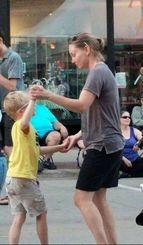 Being a parent has some really, really challenging moments. My lowlights reel from the past two weeks includes forcing my second grader to follow through on a performance commitment while he angrily panicked, feeling tearful and fragile after he beat me at checkers for the fifth time in a row (?!), and obsessively worrying about whether he will dread coming home for the holidays when he is an adult. These moments all included feelings of shame, anxiety, and depression. In fact, I would prefer to focus on my highlights reel, which is what you’ll find on my camera roll – moments of love, connection, pride, and raw joy. But it is our struggles that pull us together, so let’s take time here in this shared moment on the world wide web to pause and acknowledge the struggle that is parenting. Parenting is a hard job. I don’t know about you, but here are some of the things that make mothering hard for me:
This is just an initial list, and if you’re a parent, you probably have plenty more types of challenges to add that reflect the particularities of your life. (Note: If you’re a parent who says that raising a child is all butterflies and rainbows, you’re not an honest parent. See #6 above.) So I dedicate this blog post to all of the parents out there. If you would like to stop reading here and just dwell in the solidarity of shared suffering, be my guest – this is a nonjudgmental space. But if you are interested in hearing about how mindfulness can support us during moments of parenting pain and open us up to moments of parenting joy, I invite you to read on. Because parenting is one of the areas where I have found mindfulness to be the most delightful and impactful, and I am excited to share with you some of my experiences and practical applications in the area of mindful parenting. Mindfulness is intentional awareness of the present moment with an attitude of openness, curiosity, and nonjudgmental acceptance. This is often effective in calming our intense emotions and providing a calming response for others who are struggling. This makes mindfulness a very effective tool in responding to children, who are still learning to moderate their own emotions effectively while often triggering our own emotional responses. Savoring the Good The most beautiful part of mindful parenting is when it creates connection with our children, helping us to experience and savor the joy-filled moments. Here are some simple steps I take, when I remember, to capture these moments of beauty:
 Caring for Ourselves One of the most useful aspects of mindful parenting is using mindful awareness to calm down our own emotions, making us more effective in caring for our children and also for ourselves. Here some simple steps I take, when I remember, to effectively manage my own emotions in the midst of challenging parenting moments:
 Teaching our Children One of the most impactful aspects of mindful parenting is the way it teaches our children to manage their emotions effectively. Here are some simple steps I take, when I remember, to support my child in applying mindfulness to his own life:
If you are a parent, I would love to hear about your own moments of mindful parenting. How do you practice mindfulness in the context of your relationship with your child? What resonates with you about these approaches, and what would you add?
If you are not a parent, whether or not by choice, I hope you will find these thoughts useful in thinking about your relationship with your parents, with children in your life, or even with peers who are parents. During my many years of pregnancy loss and childlessness, I held much resentment toward parents who complained of their struggles. Mindfulness would have been helpful for me during that dark period of my life. Perhaps you have thoughts on that as well. Either way, I hope you’ll drop me a line in the comments below or at [email protected]. Special thanks to Lora Armendariz, who invited me to blog on this topic. You can find her own lovely thoughts on the subject at The Beautiful Day Project – I hope you’ll check it out. And thanks to my wonderful son, Milo, who when asked if he wanted to contribute anything about mindfulness to this blog post said "Yes. That it works really well. And that I really like it, so I think that other people might too.” So there you go -- try it out :). 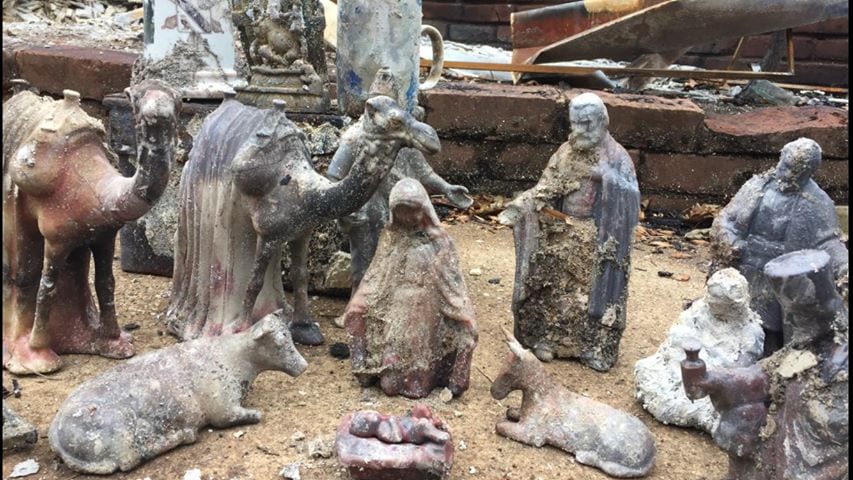 “The story of David begins in the middle of another story. All stories do. We never get a clean start in this business of life. The tablet is already scribbled all over, smudged with ink stains, blotted with spilled coffee.” - Eugene H. Peterson, Leap Over a Wall, p. 32 During the Christmas season, we become especially aware of the juxtapositions of pain and joy, despair and expectation, darkness and light that permeate our existence. Sometimes the holiday songs of happiness and cheer can seem like the saddest sound in the world. Sometimes the visions of warmly glowing homes can seem like cruel parodies. Sometimes “the way it’s supposed to be” can echo like a taunt through the realities of family dysfunction, strained pocket books, and the dreary dark days of winter. There’s nothing perfect about Christmas. Other times, our hearts are gladdened by the sounds, sights, and smells of Christmas. We receive and give kindness and are encouraged by the message of Jesus’ birth. We experience Emmanuel – God with us – and we know that we are not alone. Christmas is a beautiful season. We’ve been studying the stories of David in our Sunday School class, reading through the book Leaping Over a Wall by Eugene Peterson. We have explored this mysterious juxtaposition – that in the midst of our mess (and David was a mess), God keeps doing good things. This means that we do not have to feel, think, or act a certain way in order for God to advance his Kingdom. God is working in the midst of our mess. Mindfulness meditation is one of the pathways God has given us to see His work in the midst of our mess. Sitting in silent, curious, accepting, nonjudgmental, open observation of the present moment, I become aware of God’s gifts. This heartbeat, this breath, this touch of clothing on the skin, this hum of sounds, this place – here is God, here are God’s gifts, here is God’s Kingdom. Emmanuel, son of David, God with us in our mess, God doing his good thing all the time, whether we are aware or not. Let’s use this Christmas season to get quiet enough to be aware and to see, to receive, the gifts of his Kingdom.  For now we see in a mirror, dimly, but then we will see face to face. Now I know only in part; then I will know fully, even as I have been fully known. And now faith, hope, and love abide, these three; and the greatest of these is love. -1 Corinthians 13:12-13 The emotional surge of falling in love happens unexpectedly. However, there are certain conditions that make it more likely. The foremost of these is awareness. You can’t fall in love with someone or something of which you are not aware. So awareness, or seeing, is a prerequisite of love. (And this is not a reference only to seeing with the eyes. Seeing here serves as a metaphor for truly and directly experiencing, with or without the physical eyes.) What gets in the way of you being aware, or “seeing”? Since beginning mindfulness training, I have discovered that my primary blindness comes from internal distraction. My thoughts scurry restlessly, roaming everywhere except the place that I am. I am rarely thinking about the present moment – sometimes I’m astonished that I get through most days without major catastrophe. This is blindness. Not seeing the thing in front of me. Not hearing the sounds around me, or experiencing emotionally the person I am with. This is a lack of awareness, and this gets in the way of love. Sometimes when I meditate, I have the humorous experience of falling in love with the things in my moment. Last week, I fell head over heels for my wood floor, and a week later I still swoon when I notice it again. I know I’m not alone in these experiences – a student of mine once talked extensively of falling in love with her raisin during a mindful eating exercise. She was smitten, completely enraptured by this tiny piece of dried fruit. I think this makes God’s heart glad, when we see stuff. He has woven beauty and wonder throughout the world – our difficulty seeing his Kingdom is not because it is small, but because we struggle to see it. Mindfulness meditation can be one way of opening our eyes to what is there. When we are aware, when we see, then love will spring up unexpectedly and take us off guard. Consider yourself warned. 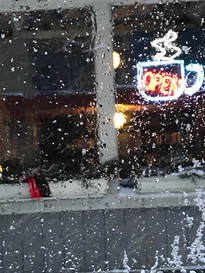 In traditional mindfulness practice, there is a meditation called Lovingkindness. During lovingkindness practice, the practitioner extends good wishes to a variety of people. This generally begins with the self: “May I be safe. May I be happy. May I be healthy. May I live with ease.” The good wishes are then extended to a loved one, an acquaintance (or stranger), a difficult person, and then to all beings everywhere: “May you be safe. May you be happy. May you be healthy. May you live with ease.” There is a prayer-like quality to this meditation. We are requesting good things for the world, cultivating care for others and including ourselves in this circle of care. As Christians practicing mindfulness, we can consciously request these good things in the presence of our loving God, knowing that he cares deeply for us and all others in the world. I struggle with the wording of the lovingkindness practice. It feels unChristian to pray for these particular things - to be safe, happy, healthy, and living with ease. And yet when I look at the requests being made, I am challenged to ask whether these things are truly unChristian or whether I have simply encountered a cultural difference in the words being used. Do Christians not regularly pray for safety? (“Lord, please keep Aunt Jo safe as she travels home to Missouri today.”) For happiness? (“Lord, Bill is struggling so deeply right now - please restore his joy.”) For health? (“Lord, we pray against this cancer in your name, knowing that you heal.”) For ease? (“Lord, this pain is so intense - please bring relief.”) I sometimes use an alternate Blessing meditation that instead holds people in the loving presence of God while offering this prayer: "May I (you) know God’s love. May I (you) know God’s rest. May I (you) know God’s peace.” This is also a beautiful practice. Receiving and extending blessing is deeply life-giving. But I wonder at my discomfort at the traditional lovingkindness practice. I wonder if this is just one of the ways that my faith-related cultural norms -- my usual American, evangelical ways of doing things -- get in the way of me seeking God’s face wherever, in whatever cultural context, he may be found. This is not a knock on American evangelical culture. Simply a reminder that God shows up in every culture. I don't want to get tripped up by unfamiliar language -- I want eyes to see Him everywhere I go. So I pray for you today: May you be safe. May you be happy. May you be healthy. May you live with ease. Amen. One of the best thank yous that I’ve ever received for a gift was from a one-year-old, a person too small to talk. How did he say thank you without words? He looked at the gift for a looooonnnng time. He examined every nook and cranny of the elephant pull toy, swiveling the ears and pointing his tiny pointer finger at each color. He turned the wheels with curiosity. He gazed up in his mom’s face, smiling and pointing her attention to the new toy. He gestured to unwrap it, and then took more time to point, examine, and smile. His gratitude overflowed, and my heart as a giver was warmed. This tiny, wordless human was practicing mindfulness. He centered his full, direct attention on one thing in the moment. He allowed himself to experience the visual and tactile features of the toy without preconceived notions about what a gift should be like. He was unencumbered by the filter of language, experiencing the object (and his mother holding it) in a pure form rather than getting lost in interpretations, analysis, or judgments. We can receive gifts in this way; we can practice mindfulness as a way of experiencing and demonstrating gratitude to God. In mindfulness practice, there is nothing off-limits to our attention. All of life is a gift, every thing in every moment, the pleasant and unpleasant. So in every moment, we have the opportunity to really gaze at the gift. We can pause to experience the gift without expectation, without interpretation or analysis or judgment (positive or negative). We can be absorbed in the gift, long enough to experience the beauty that God has woven in. Long enough for the heart to settle, the peace to grow, the smile to come. I can only imagine that this brings warmth to God’s giver heart - us entering into a full experience of what he has lavished on us in the moment. Here are some recent examples from my moments:
The examples are endless because the moments of our life are too many to count - the sheer extravagance of God in giving us so many moments, so many gifts, is staggering. By practicing focused, nonjudgmental attention, we receive God’s good gifts with gratitude and even with joy. The gifts are there, if we but take time to receive. When we do, we warm the heart of our giving God.
My six-year-old told me yesterday that he can go through life just thinking “oh, there’s a tree, there’s the sky, there’s a splash pad.” But when he goes “behind the scenes,” he notices how beautiful these things really are. I asked what he meant by “behind the scenes.” He said, “oh you know, just really noticing them and looking.”
Stop to notice, to really look. The beauty is always there for those who have eyes to see. I typed out a snarky Facebook post: A quick perusal of FB this evening reminds me that everyone else is having a better life than me. Then I deleted it. I was feeling glum. James was in Hawaii. Anna’s kids had grown up into striking, good-looking teenagers. Susan got into a new graduate program and looked great in her snazzy professional suit. Alexis’ husband was publicly professing love for his beautiful wife who is an amazing mom. Jane’s family was vacationing in some tropical location so exotically cool that I had never even heard of it. *
None of these things were happening to me. Reading everyone else’s “highlights reel” in my frumpy pajamas, I felt discontent, jealous, and covetous. I was not experiencing the fruit of the Spirit – there was no abundance of love for myself or others in my heart. Things were looking pretty ugly inside. Maybe you already know that the Bible has something to say about this common social media predicament? Coveting is uniformly discouraged, even condemned, in Scripture. We see this most famously in the tenth commandment: “You shall not covet your neighbor’s house; you shall not covet your neighbor’s wife, or male or female slave, or ox, or donkey, or anything that belongs to your neighbor.” A social media version might read “You shall not covet your neighbor’s house; you shall not covet your neighbor’s partner, or kids, or outfits, or career, or car, or vacation, or anything that belongs to your neighbor.” So there was a pretty clear disconnect in that Facebook moment between my life and my faith. It was mindfulness that got me reconnected, following a path that looked something like this. I noticed that it was raining and that the sound of the rain was beautiful. I noticed that I was hurting, and that my viewing of Facebook was creating unnecessary suffering. I chose to step away from the screen and into the present moment. I closed my computer. I stood up. I noticed that my sweet husband of seventeen years was sleeping next to me. My heart grew warm. I walked into the next room and saw my sweet son sleeping, ensconced in his stuffed animals. I felt a wave of amazement and joy. I noticed the moonlight shining through the bathroom window. I stood in awe. I became aware that I had a roof over my head, water piped into my house, and plenty of food in the kitchen downstairs – I felt deep gratitude for these provisions. I remembered – oh yeah! This is where life’s good stuff is. Right here, right now, in the present moment. But I have to get my eyes off social media, off other people, and onto my own life, with mindful awareness, in order to see it. * Note: Names have been changed for confidentiality… Henry Williams is contributing as a guest writer from his blog, A Road Called Hope, where he writes about the intersection of depression and faith. He shares thoughts here related to self-judgment, Jesus, and peace. Thanks Henry! “Which shoes should I wear today, Henry? My new pair of sneakers hasn’t been broken in yet, but my old ones are half a size too small for me.”
I sighed when my dear sister asked me this. I was upset that I didn’t think my advice would move her towards choosing one way or the other, and impatient at her for being indecisive when all I wanted to do was get everyone out the door. But what would have been a minor frustration for many of my friends turned into a lengthy internal dialogue as we sat next to each other in the car that morning. Was I right to be frustrated at her? Only moments after we had left the house, frustration at my sister was no longer the main thing I was feeling. Rather, the memory of that impatience was causing me to feel guilty. Shouldn’t I have been more kind, more gentle towards her? Why couldn’t I be a good older brother to her? As in Dr. Kristin Neff’s Self-Compassion exercises, my mind had created a dialogue between the accused and the accuser. This is not an uncommon occurrence for me. I have long learned to stifle certain emotions (fear, anger, shame, guilt) by telling myself that I ought not to be experiencing them. The word ought involves moral evaluation, or judgment. Paradoxically, judging myself in this way has lead directly to more guilt and indirectly to more of my other ‘blacklisted’ emotions. As I became conscious of this pattern I began to ask: Must self-examination involve self-judgment? Can investigating one’s motives, hidden thoughts and desires without evaluating them be a faithful moment in Christian worship? These are questions that have concerned the Christian tradition for centuries. One thinks of St. Ignatius of Loyola’s spiritual exercises, or perhaps the traditional Anglican collect for purity: “Almighty God, unto whom all hearts be open, all desires known, and from whom no secrets are hid: cleanse the thoughts of our hearts by the inspiration of thy Holy Spirit, that we may perfectly love thee, and worthily magnify thy holy Name; through Christ our Lord. Amen.” One thinks of the Puritans of England and New England and pious zealots throughout Christian history, who, at their worst, were consumed by thoughts of their own guilt and blind to the transcendent grace of God. One also might think of modern and postmodern philosophical interrogations (such as Nietzsche’s and Bernard Williams’) of the guilt-dominated Western Christian conscience. As heirs to these rich—and, let’s be honest, confusing—philosophical and theological understandings of guilt, perhaps we might return to the words of Christ himself for clarity on the question of guilt. I’m thinking in particular of his words to the woman caught in adultery in John 8. After warding off her would-be executioners by simply inviting them to question their own righteousness, Jesus asks the unnamed woman, “Has no one condemned you?” “No one, sir,” she answers. “Then neither do I condemn you,” he responds. “Then neither do I condemn you.” Christ’s words here do not suggest an upheaval of guilt, or express the idea that guilt is an unhelpful emotion under all circumstances. They rather constitute a suspension of guilt and judgment. After all, Jesus is just about to tell the woman to “go and sin no more,” implying that her past actions were indeed worthy of guilt. But amidst the fury of her accusers, Christ invites the woman into a moment of blissful peace, peace brought on by the retreat of all accusations, the type of peace that Dr. Neff attempts to lead practicers of self-compassion into in the exercise above. One could even say: Christ leads the woman into self-awareness. Paradoxically, the suspension of judgment allowed her to see herself as she truly was: a beloved child of God. Oftentimes we think that God is accusing us when in reality we are our worst critics, poised to throw the stones at our very selves. Do we dare to mindfully examine ourselves, suspending judgment? If so, perhaps we might encounter the very grace of God, who is always saying to us: “Neither do I condemn you.” What if we were to practice this self-awareness? What if we were to sit, if only for a moment, in the absence of all judgment? For if Christ does not condemn us, “who is there to condemn?” (Rom. 8:34). What if the voices of judgment that we needed to learn to silence were not God’s, but our own? If these voices are just noise and not worth a tenth of the heed we give them, then silencing them will bring us peace. And in the quiet, perhaps we might even glimpse the face of Jesus…tenderly speaking to us words of peace and sending us out to lead a transformed life. - Henry Williams Mindfulness means being at home in the deepest part of yourself. Finding over and over -- cultivating -- a deep sense of home within yourself, exactly as you are, exactly where you are.  I am in a season of home in my life. After a lifetime of constant moving (29 living spaces in my first 35 years), I have now lived in the same house for over 8 years. This is a phenomenal record for me. It feels great. I am learning my town and neighborhood in ways one can only do by spending lots of time here. I have gotten to know people – I run into friends and acquaintances unexpectedly when I go out. I feel an evolving sense of belonging and fit. Now when I see someone loading up a U-Haul truck, my instinctual response is repulsion and compassion – I am so sorry that they have to go through that. My days of perpetual restless moving are over. I have a home. What feels like home for you? Is it a house? Or a person? A certain neck of the woods, or a favorite song? Is it a treasured wall hanging, a familiar meal, or a worn-out sweatshirt? What do you go to when you’re sad, frightened, or displaced to get you back in touch with yourself? What grounds you? What is home?  This is the feeling of mindfulness – a sense of home. But a sense of home grounded deep within ourselves. The only way I know to get to this deep feeling of home is to meditate. Sitting quietly, observing nonjudgmentally, being curious, allowing the fog to clear – this helps me to know myself and to love myself. To care for myself and settle in.  When I meditate, I am opening up this pathway to home within myself. This makes it easier to walk that path informally during each day – to find my way home in the midst of feeling sad, frightened, or displaced. To get back in touch with myself, to be grounded. To be at home right here, right now. In this home, God is present – love thrives, and I am open to receive it. It’s the same feeling I have when I remember an untouched, remote piece of nature from a backpacking trip. Or my young son’s affectionate snuggles with me after he returns from an adventure-packed sleepover at Grandma’s. Or the BFF talks that I share with my husband but no one else. Home. Have you had this experience of home? If not, mindfulness meditation is for you. God is waiting to lead you through the chaos of thoughts and feelings, through the uncomfortable physical sensations, through the blinding fog of life… into a quiet and still place deep within you that is home. A quiet place that you carry within you every day in every moment. Home.
The Garden of Gethsemane. Jesus -- the Son of God -- was about to die, taking on the sins of the whole world in an horrific and public execution. He had spent years on earth, intentionally sharing the human experience in a life filled with poverty, rejection, homelessness, and violence. Now he was fully present to the reality of his upcoming sacrifice, "grieved and agitated," in deep turmoil. No avoidance of emotions here -- Jesus is throwing himself on the ground, sweating blood, asking his heavenly Father to "let this cup pass." And in the midst of all of this intense, divine drama, there is one simple request he makes of his disciples. Stay awake. He's taking care of everything else. He just wants them to stay awake. (Matthew 26:36-46 & Luke 22:39-46)
They can't do it. They are too tired. Luke's account gives them the benefit of the doubt and cites their grief as the reason they can't stay awake -- whatever the reason, the disciples are checked out. They are not present. They have left Jesus in his grief and turmoil, not even capable of staying awake to pray for their own salvation from the time of trial as suggested. Their attention is gone, and Jesus is urging them to stay. I find myself comforted by this account. Because I, too, am not great at staying with Jesus. My devotion to Him flags, I doubt Him in my thoughts. I forget to notice Him. I live as if I am my own boss, generally oblivious to His all-sustaining care in each moment. I fall asleep. I neglect prayer. I am like the disciples. And so I know that His ultimate sacrifice for these wandering, sleepy, avoidant, checked-out men counts for me too. They didn't earn his love and neither do I -- He takes us as we are. But what an example Jesus sets for us, and what a beautiful admonition. "Remain here, and stay awake with me." Wow. What does it look like to stay awake? To stay awake with Jesus? The Taizé song, Stay With Me, is often sung during Lent, and it draws me into this longing to stay with Jesus -- to be fully present with Him. Could there possibly be anything more fulfilling, more satisfying? No, nothing. Being unified with Christ is the answer to all of our deepest questions. I use mindfulness to practice staying. Mindfulness is sometimes referred to as the practice of being fully awake. It keeps us from sleepwalking through life, so that we don't miss out. Through mindfulness practice, we train our attention to rest with intention on the present moment (which, by the way, is where we must be if we are to stay with Jesus). We train our awareness to be alert and our eyes to be wide open. We practicing noticing our wandering (whatever the reason for the drift), and we bring our attention back as many times as we are able. We practice staying. Jesus, you are here. I choose to practice staying so that I can be with you. I've always believed in the importance of silence -- my religious upbringing prepared me well to understand this cognitively. But for most of my life, I didn't know what to do with silence other than endure. To be in silence was an act of obedience, akin to taking my spiritual medicine. It was only through mindfulness training that I learned to listen to silence. That's not quite what I mean. I didn't exactly begin to listen to silence. It was more that in listening to silence, I learned to pull away the curtain and experience God. To dwell in God rather than trying to hear a message or get a fix. To saturate my senses with God's goodness. In this way, mindfulness practice has opened the eyes and ears of my heart to the richness with which God has infused each moment of life. Before mindfulness, I had little interest in paying attention to the present moment because I didn't believe I would find anything there but pain, emptiness, and boredom. Now I know that every moment, whether pleasant or unpleasant, holds the delicious kernels of joy for which my soul longs. Emily Barrett Browning famously wrote (in Aurora Leigh, 1857), "Earth's crammed with heaven, And every common bush afire with God: But only he who sees takes off his shoes." We rush through our days with the eyes of our hears closed to Him. Stop. Observe. Listen. Take off your shoes. Receive. Savor. Be curious. Open yourself to God. He is here. Now.
To get the good stuff out of life, we have no choice but to be real -- fully present and engaged in life, with our senses alive and our eyes wide open. And life is happening right now. So what's to be found in your moment? Silence will be your guide. I have a very specific picture in my head of how Christmas is supposed to be. Chances are, I don't have to describe it to you because you already know. But just to be clear, the picture looks like this: We are all super happy. This happiness, of course, involves snow outside, a cute snowman, a fireplace, hot chocolate, a perfectly decorated Christmas tree, a loving family, the singing of carols, delicious food, and deeply meaningful (yet surprising) gifts. Wow, talk about an unattainable vision. It is no surprise that so many of us get depressed during the Christmas season. Perhaps the bigger shock is why we're not all completely incapacitated by depression during the Christmas season. Because as someone once said (maybe Socrates?), "what screws us up the most in life is the picture in our heads of how it's supposed to be."  My Christmas tree this year looked smaller in the field than in my living room -- the trunk didn't fit in the tree stand, so we had to shave down the outside of the trunk to squeeze it in (requiring a few trips in and out the front door on a freezing cold night). As we decorated it, I stepped on a 35-year-old handmade ornament from my husband's childhood and broke it. We topped off the tree with our only tree-topper, a pale blonde angel that triggers anxiety for me about white privilege every Christmas season (when will I just buy a star?). A couple days later, all of the lights on the bottom half of the tree stopped working, leaving only the top half lit. In the meantime, our freshly-cut tree was quickly dry to the bone -- it was dropping needles faster than we could pick them up, and branches became rapidly bare. And the Christmas presents I bought were okay but not quite right. (Did I get too many? Too materialistic? Or did I not get enough? Too stingy? Will my child be messed up because of the gift choices we've made?) There's no fireplace in my house. The hot chocolate we make is often too hot and too rich, and our feeble snowman attempts fall over within a few hours. Inevitably, the "white Christmas" of our dreams turns to a "slush Christmas," and the family doesn't get along as well as would be hoped. We all feel self-conscious (or cynical) about singing carols, so we don't. To sum up: Christmas is not always super happy. In fact, sometimes I find a feeling of deep emptiness and despair during Christmas time that freaks me out. Nobody sings about this on the radio at Christmastime. I am learning to expect imperfections and even despairing feelings at Christmas, and this makes all the difference in my ability to enjoy the holiday. It is an attitude of mindfulness that allows me to be with what is instead of with the thoughts of what should be. Without mindfulness, I am prone to negatively judge the malfunctioning Christmas tree lights, the lack of carols, and the difficult family dynamics. With mindfulness, I expect these troubles and am okay with them (even curious about them) as they are. And isn't this what Jesus asked of us as he neared his own earthly life of difficulties? "...in me you may have peace. In this world, you will have trouble. But take heart! I have overcome the world." (John 16:33) Perhaps Christmas is a golden opportunity for us to practice noticing our expectations, laying them aside, and accepting things just as they are. It is what was asked of the Jewish people when Jesus appeared -- notice the expectation of a political Messiah, lay it aside, and accept the gift of this homeless infant Messiah laying in an animal's feeding trough. We struggle with this. Our carols still sing of Christ's arrival as a quiet and peaceful event. But in reality, births are not quiet, especially in stables in overcrowded towns. And we still long for a political Messiah today. Perhaps we know by now that God isn't sending one directly, but we think maybe we will be saved by a different political leader, maybe an Obama or a Trump -- and we are surprised and terrified when the "wrong" political leader doesn't save us or even threatens to cause harm. Let's practice expecting the "trouble" that Jesus predicted and also accepting that we are okay. We can (and will) have trouble, and still have peace. We can (and will) experience grief, disappointment, anger, and fear, and still have peace. We can (and will) find that the world is a broken mess, and still experience beauty and joy amidst it all. This is mindfulness. This is also Christian faith. "...in me you may have peace. In this world, you will have trouble. But take heart! I have overcome the world." With mindfulness and with Christianity, we practice an attitude of radical acceptance -- accepting things just as they are, recognizing that God is with us right here. Bringing a readiness to change what we can along with an openness to being with life as it is. If you would like a meditation to support your acceptance (and enjoyment) of life as it is during this holiday season, you might try one here by Mark Williams. Whether or not all your Christmas lights work this year, and whatever you are feeling or not feeling during this season -- may you know the presence of the Christ-child with you. "In this world, you will have trouble. But take heart! I have overcome the world." 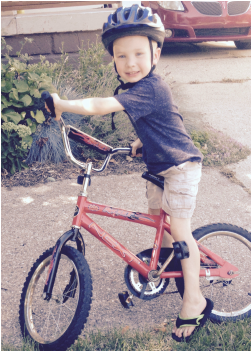 A friend of mine recently took her child to a clinic where she was taught to ride a bike in two hours. One of the first steps in the process? Learning to fall. Kids fell intentionally, learning that falling did not spell catastrophe or failure -- it was simply part of the learning process. They also learned that there are ways to fall that are less painful than others (ex. into the grass), and that they could get up and keep going after a fall. This is a profound life lesson. Falling is part of success. We can expect it, but not fear it -- it's part of learning, and it does not spell failure. When we pay attention, we discover what makes falling less painful (ex. try being more kind to yourself when you're down?), and we practice getting back on the bike as soon as we're ready. We learn that falls don't define our identity. They are simply part of life, part of learning, part of success, part of mastery. If we're going to live life, we're going to fall. So go for it! Go out and fall, ready to learn and grow in the process, ready to try new things, ready to be a human being, just like the rest of us. Have some band-aids ready for those scraped knees, and then hop on that wobbly bike. Struggling to get up after you fall? Here are some tips to ponder as you practice falling:
Enjoy the ride! As Christians, we affirm that God is good and that we can trust him in everything. We commit to listening and responding affirmatively to His voice, to saying "yes" to all that He gives. We trust that what he asks is not more than we can handle, and we know that he works all things out for our good. So what's up with all the complaining? Humans are master complainers, myself included. For most of us, nothing is ever quite right. We're not happy with the little stuff (like the weather), and we're not happy with the big stuff (like the people around us). We have a hard time accepting life as it is -- we have a hard time saying "yes" to what is given. When God hands us a moment, we tend to either ignore it or push it away. This is how our minds create suffering for ourselves, even when we know that God is working all things out for our good. Mindfulness gives us a new option: to say "yes" to the moment, to extend an intentional, open, and curious welcome to each moment of life. With mindfulness, we do not suspend our welcome until a moment proves itself worthy. We extend our welcome to each moment. In doing so, we say "yes" to God -- not just cognitively, but by letting ourselves experience the moment fully in our bodies and hearts. This is confusing in the face of suffering. We live in a world of injustice. In America, we suffer a climate of racism and political strife that is fueling murder and unrest across our country. We are nervous for the safety of ourselves, our neighbors, and our friends. We know that things are not right, that love is not the norm in our world. The more we talk about it, the more polarized things become and the farther we get from understanding one another. Many of us feel tired, worn down, and afraid. There are lots of reasons to reject the moments. The problem is, when we reject a moment, we are blinded to God in that moment, and we are blinded to the path before us. We cultivate wisdom when we pause to welcome what is before us, and this empowers us to act more effectively. Welcoming the moment also gives us the grace to experience goodness in the midst of pain.
Just to make sure we don't take ourselves too seriously... :) What are you thinking about right now -- is your mind here, in the same place as your body? Most of the time, our minds are elsewhere. We ruminate about difficult memories from the past. (What did that person mean by that comment?... Why wasn't that handled differently?... What if I had made a different decision?...) We ruminate about anticipated difficult things in the future. (What if it's awful?... What will people think of me?... What if I can't handle it?...) In this way, our mind creates much of its own suffering. It is easy to believe that thinking about past or future difficulties is helpful, and occasionally it is. Most of the time, however, our thinking is unhelpful and stuck. We create problems in our minds through negative looping, largely outside of our awareness. This pulls us into painful emotions that are disconnected from the reality of the present moment. When we pay attention to now, we can often find that we are okay in unexpected ways. "The evidence is clear: brooding is the problem, not the solution." Thinking is just one element of our experience in each moment. As long as we are alive, we are thinking. Our brain generates thoughts, one after another, in much the same way that our hearts pump blood and our lungs breath air. The goal of mindfulness is not to stop thinking. Instead, the goal is to work skillfully with thoughts, recognizing that they are only one element of each moment. They do not control us, they are not facts. They are simply experiences passing through the mind. We can decide what to do with them and how to respond. God speaks in many ways beyond our thoughts, and He reaches our thoughts in many ways beyond our ruminating. He is here in the feeling of a breeze on skin, in the smile of a stranger, in that first sip of morning coffee, in the support of a chair. He creates and fills the sounds of the birds, the warmth of sunshine, the reflection in a puddle of water. He dwells within the green grass, the icy snow, the wet rain, the desert heat. Each step you take is in God, each breath you take. God is always here. "Silence of the heart is necessary so you can hear God everywhere — in the closing of the door, in the person who needs you, in the birds that sing, in the flowers, in the animals." For me, mindfulness is the practice of being where God is -- here. Over and over, whenever I notice that my mind has wandered away, bringing awareness back to this place and this moment. This is a powerful psychological tool on its own, even without any faith application -- awareness is deeply healing for the mind, body, and spirit. But when you take this present-moment awareness and add an openness to God's presence, you are opening yourself up to a whole other level of goodness. You are following an ancient faith tradition of training the mind to be present to God. God is here. I use mindfulness to practice being here too. Happiness is a beautiful thing, a sweet and delicious taste of God's goodness. Sometimes Christians think we shouldn't pursue happiness, or that happiness is a less righteous pursuit than joy (as if these were fundamentally different). I disagree. Happiness is lovely and joyful; it makes my life more fulfilling, and it makes me a better person to be around, and I want more of it.
Lots of things stand in the way of happiness. Here's one of them: we think we're supposed to be happy all the time. When we don't feel happy, we see it as a problem to be fixed. We believe that we are abnormal, comparing ourselves to people around us who appear to be happy. In the process, we repeatedly re-trigger our unhappiness by overthinking it. Happy feelings do not have a chance to re-emerge because we are locking ourselves into unhappiness by obsessively analyzing our normal emotional fluctuations. No one feels happy all the time. As long as you are alive, your emotions will come and go, fluctuate and morph and transform. Happiness comes and goes, along with sadness, anger, joy, stress, excitement, grief, fear, compassion... This is okay, it is normal. It means you are a human being. It also means you are made in the image of God, who is shown in Scripture to experience the same range of emotions. Getting happy is HARD for many of us because it means opening up to our unhappiness without resistance. When I first started mindfulness training, I came home and told my husband that I felt like I had just entered hospice care. Here I had been working so hard my whole life, trying to stop being so depressed, and suddenly I was just supposed to accept it? To just say yes, I'm depressed, and that is out of my control? To lay it all down and admit that I couldn't change it? That sucked, and I wept long and hard that night. Fortunately, I've lived long enough to know the power of hospice care -- to observe how acceptance in the face of death can open us to all kinds of beautiful things. And this was the reality of mindfulness for me -- acceptance in the face of deep despair opened me up to all kinds of beautiful things. Now when I feel unhappy, facing deep despair, I have a new option: mindful acceptance. I know how to use meditation to watch the unhappiness with curiosity and openness. The unhappy feeling is no longer a problem to be fixed, it is simply an emotional event passing through. In the same way, a happy feeling is not a state to be kept or lost, and it is not a necessity for life -- it is simply a passing phenomenon. When I feel happiness, I can take time to experience the emotion without clinging to it or striving to keep it. I can experience and savor it with gratitude. I'm a lot happier than I used to be, largely because I'm learning to be okay with feeling unhappy. Giving up the struggle against unhappiness has created new room in my soul for joy. This process of acceptance, of mindfulness, has led me to the first consistent feelings of happiness that I have experienced in my life, and I never want to go back. I am forever grateful to God for the way that mindfulness meditation has opened me up to His joy. Mindfulness meditation, and mindful awareness, get me out of my head and into the joy that God has woven into the very fabric of our universe.  We just wrapped up Holy Week, and wow was that a roller coaster. Palm Sunday, we remembered the crowds lauding Jesus as he entered Jerusalem triumphantly. Maundy Thursday, we remembered Jesus washing his disciples' feet, the beautiful, unifying words that he shared with his disciples at the first communion, his betrayal, and his arrest. Good Friday, we remembered the crowds turning on him and his violent, brutal death. Holy Saturday, we remembered the hopeless, fearful hiding of his followers. Easter Sunday, we remembered his resurrection that conquered the power of death for us all. Amidst all the remembering, my present-day life was a roller coaster too, filled with ups and downs throughout the week. By the time Easter morning rolled around, I hadn't yet recovered from a major emotional blow the evening before. I wasn't feeling a bit Easterish. I was feeling decidedly Good Fridayish. As the pastor prayed mid-service and I bowed my head, hot tears brimmed and I was miserable. He is Risen! And I was sitting in a puddle of self-pity and resentment. It is the Jesus who lived the roller coaster of Holy Week that showed up for me in that moment on Easter morning. "It's okay," He told me. "You don't have to feel the Easter right now. I'm with you in the Good Friday too. I've been there too. I'm right here with you, whatever you're feeling. Life is hard, but you're not alone." Jesus understood. Oftentimes when we're down, we think we need to get happier -- to find the bombastic Easter inside of us. In that moment of Christ's tangible presence on Easter, I was reminded that what I needed was to open up to my experience as it was -- to let Christ in. On his own Good Friday, Jesus did not spend his time in the Garden of Gethsemane rejoicing in the power of the resurrection. He spent his time weeping and asking to get out of the suffering, feeling abandoned by his disciples who couldn't even stay awake for him. Jesus is not afraid of my Good Friday emotion. He's lived it, and he lives this roller coaster with me too. This is the beautiful intersection of faith and mindfulness. Mindfulness reminds me to be fully present to my life, all of it. When I do that, my eyes open and I see Jesus. Usually, I'm like the disciples on Easter morning who cleared the scene of the resurrection and returned to their homes, not understanding. Or I'm like Mary who lingered by the tomb, cluelessly searching for some tiny scrap of hope (Jesus' dead body) when everything she longed for was right in front of her (the risen Christ). When I am mindful, I linger with the moment long enough, and I open my senses wide enough, so that I see Jesus standing in front of me, no matter how I'm feeling. My pausing and opening creates the opportunity to hear my name like Mary did, to recognize that all I need is right in front of me -- that Christ is risen, and Christ is present through it all. I must only pause, open, and listen for my name. |
Author
I am Irene Kraegel. I am licensed as a clinical psychologist and teach mindfulness on a faith-based university campus. I practice mindfulness because it opens me up to God (a.k.a. brings joy). I am writing here in hopes of sharing some of my experiences and thoughts related to the practice of mindfulness in the life of a Christian. Thanks for reading! Books
Blog archives
December 2023
|

